Very few people in the world of computer wargame design have been concocting conflicts sims commercially for as long as Robert Crandall of On Target Simulations. Although the father of the chaos-embracing Flashpoint Campaigns series is busy putting the finishing touches to FC: Cold War at the moment (FCCW will hit Steam on November 20) he found the time to participate in the following THC interrogation.
Tim: Do you recall your very first brush with wargaming?
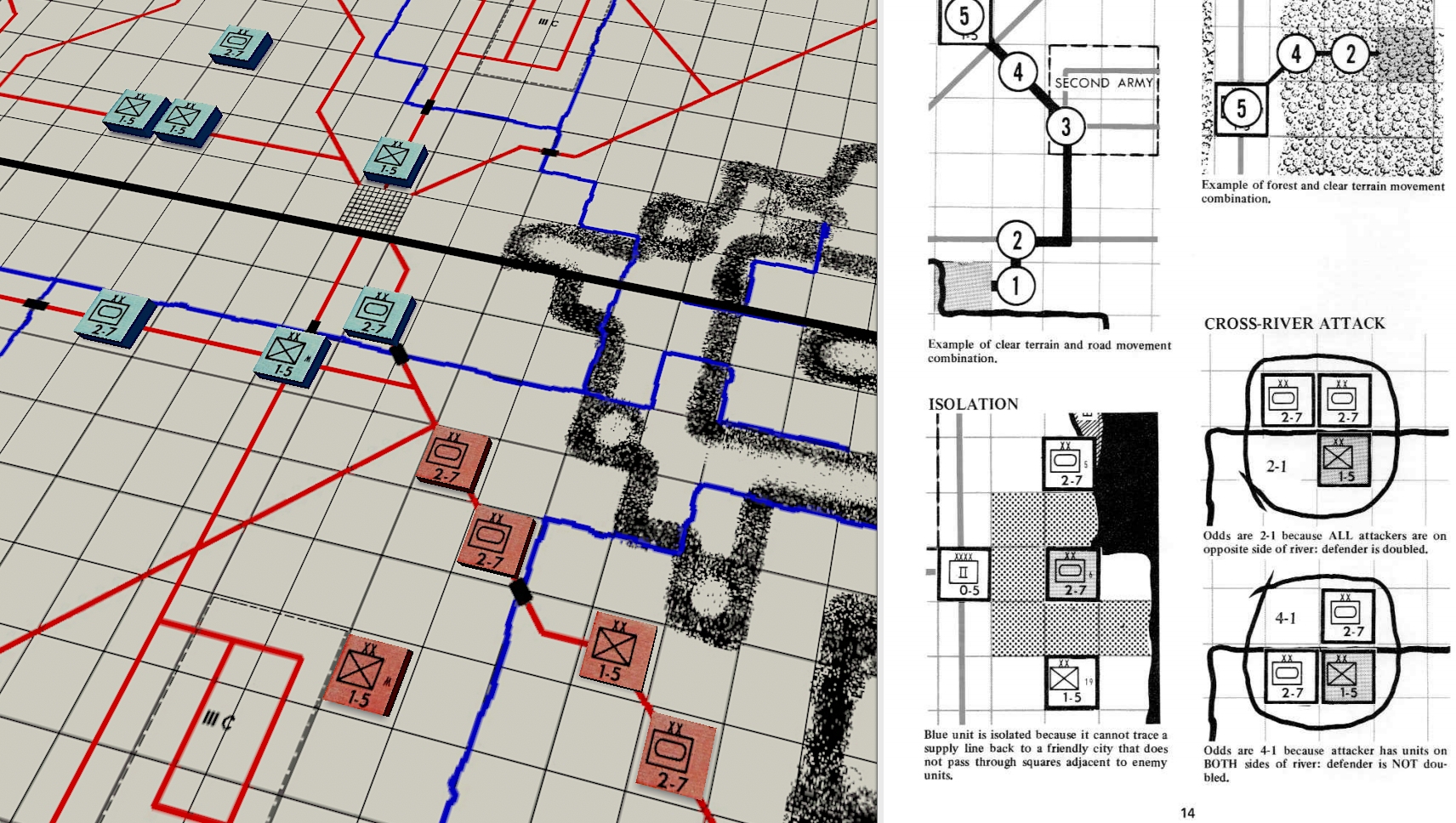
Robert: Once upon a time, wise parents would buy a wide variety of board games at department stores so that bored young sons would have something to do on rainy days. I encountered Avalon Hill’s Bismarck and Tactics II that way. Things really didn’t get going, though, until a friend brought over SPI’s Napoleon at Waterloo when I was 16. Holy Smokes! The rest is history.
Tim: According to MobyGames your career in computer games design began circa 1989 with a texty title called Malta Storm. Was MS actually your first design?
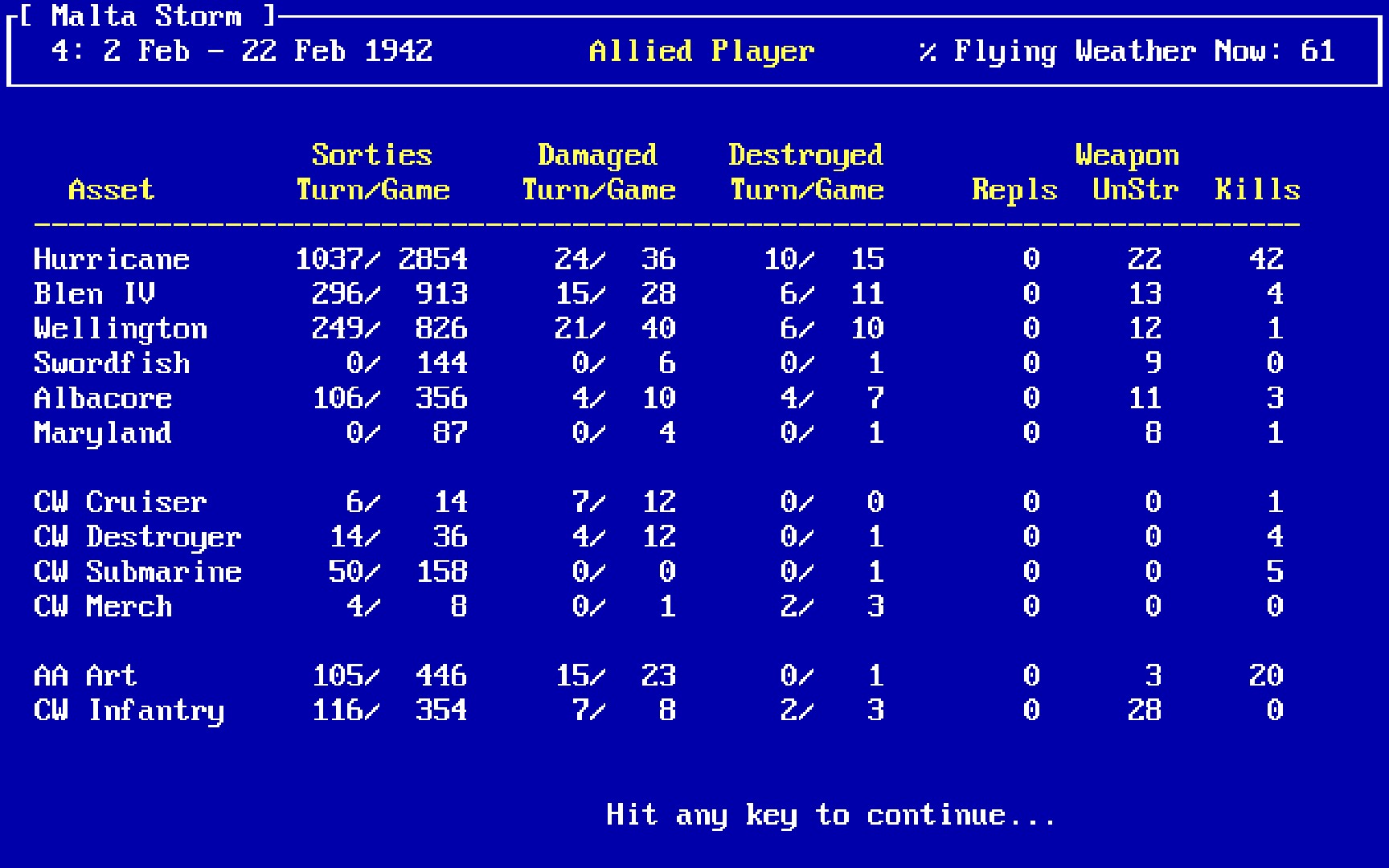
Robert: Ah, Malta Storm by SimCan in 1989. I had a huge interest in military history by the time I got into university, and was particularly interested in the Eastern Front, but also the Desert War in North Africa. (Well, those and Normandy in 1944. Plus the Pacific WW2, and also some Napoleonics.) I had read about the planned Axis attack on Malta in early 1942 and was intrigued by the thought of the air, ground and naval aspects for both attacking and defending it. It was a sustained, multinational, multi-domain operation for both sides that had boundless what-if possibilities. Stephen Newberg at SimCan was very encouraging, and so I stopped fiddling with Eastern Front possibilities and got serious about creating a releasable game. This was after perhaps 10 years of hobby efforts meant to improve my programming skills more than anything. Malta Storm was indeed my first commercial release and one of three I did for Simulations Canada.
Tim: How long did those early Simulations Canada titles take to develop, and do you miss the relatively short dev cycles of that era?
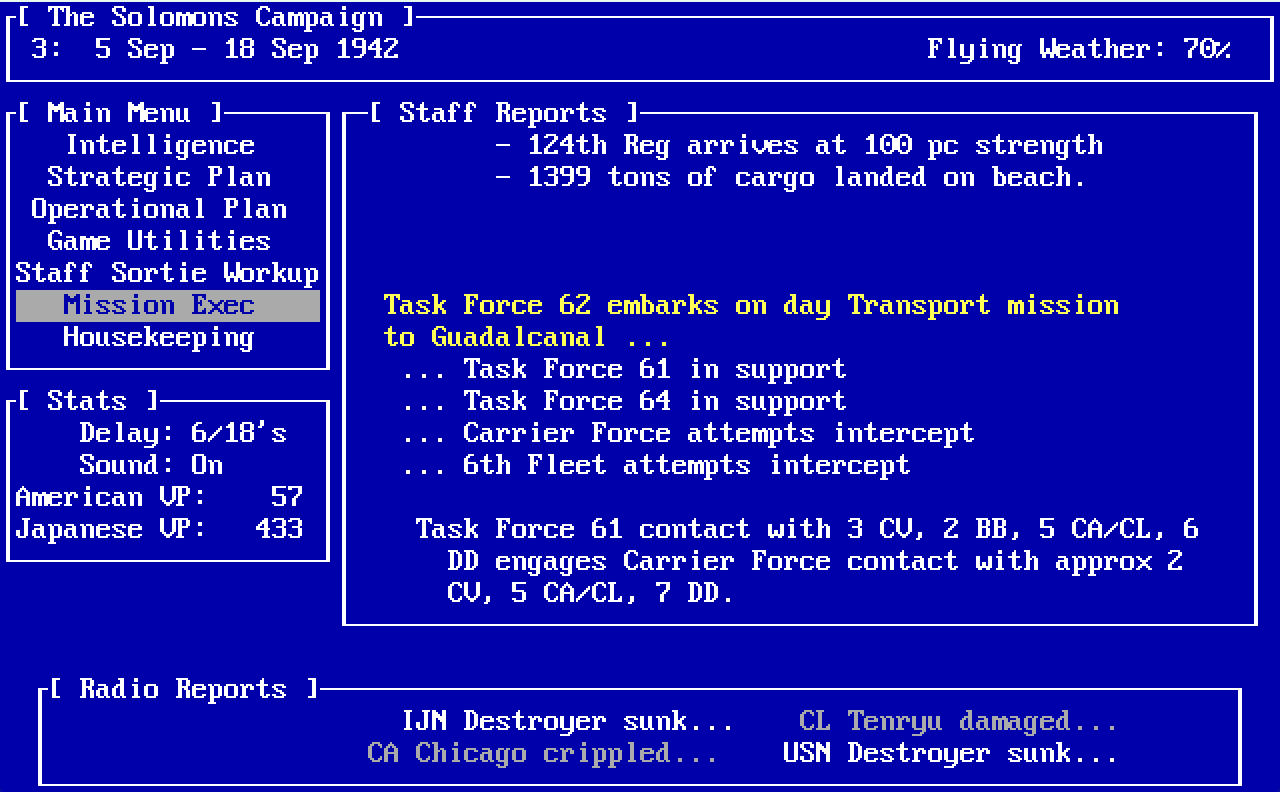
Robert: I remember it was expected to take 6 months, but in reality, it took 18-24 months. I could be off a little on that, though. I would love to see such short cycles again. In those days, the development experience was more like writing a very short book and then moving on, much as board game developers did. Also, like a book, it was never really ‘done’, you just ran out of resources. Expectations were low in those days, though, so it was easier to say you were done earlier than you can now. Sigh.
Tim: WEGO turns, influential order delays, radio traffic penalties, NBC warfare, hand-drawn hexless maps… how did Flashpoint Germany, your first Matrix Games project, end-up so unconventional?
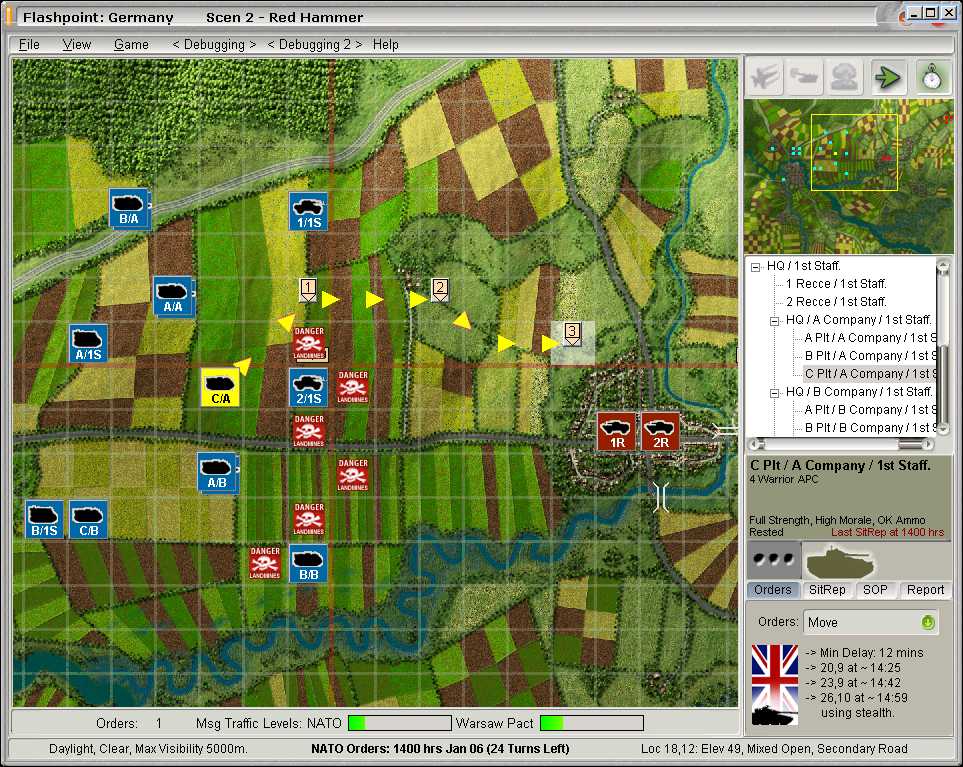
Robert: The Simulations Canada game catalog ended up being taken over by a new bunch of guys called Matrix Games. I talked to the president at the time, pestering him when updates would come out. He talked me into updating Main Battle Tank as an introductory wargame they could sell. He sent me all the code, but it was 10 years old by then, and worse, was text-only. It gave me enough of an impetus to do my own graphical version of the game though – Flashpoint Germany. Main Battle Tank had been created as a training aid for the Canadian Army to teach overconfident young officers that the battlefield was utter and complete chaos. These game mechanics, plus an almost complete fog of war, were instrumental in conveying that lesson. We expanded on all this over time, of course, and FPG was very different in major ways, but you could still see those original design ideas at the time, and indeed today.
Tim: For a while it looked like FPG would be followed by a Middle Eastern wargame. What happened to that sandy sequel?
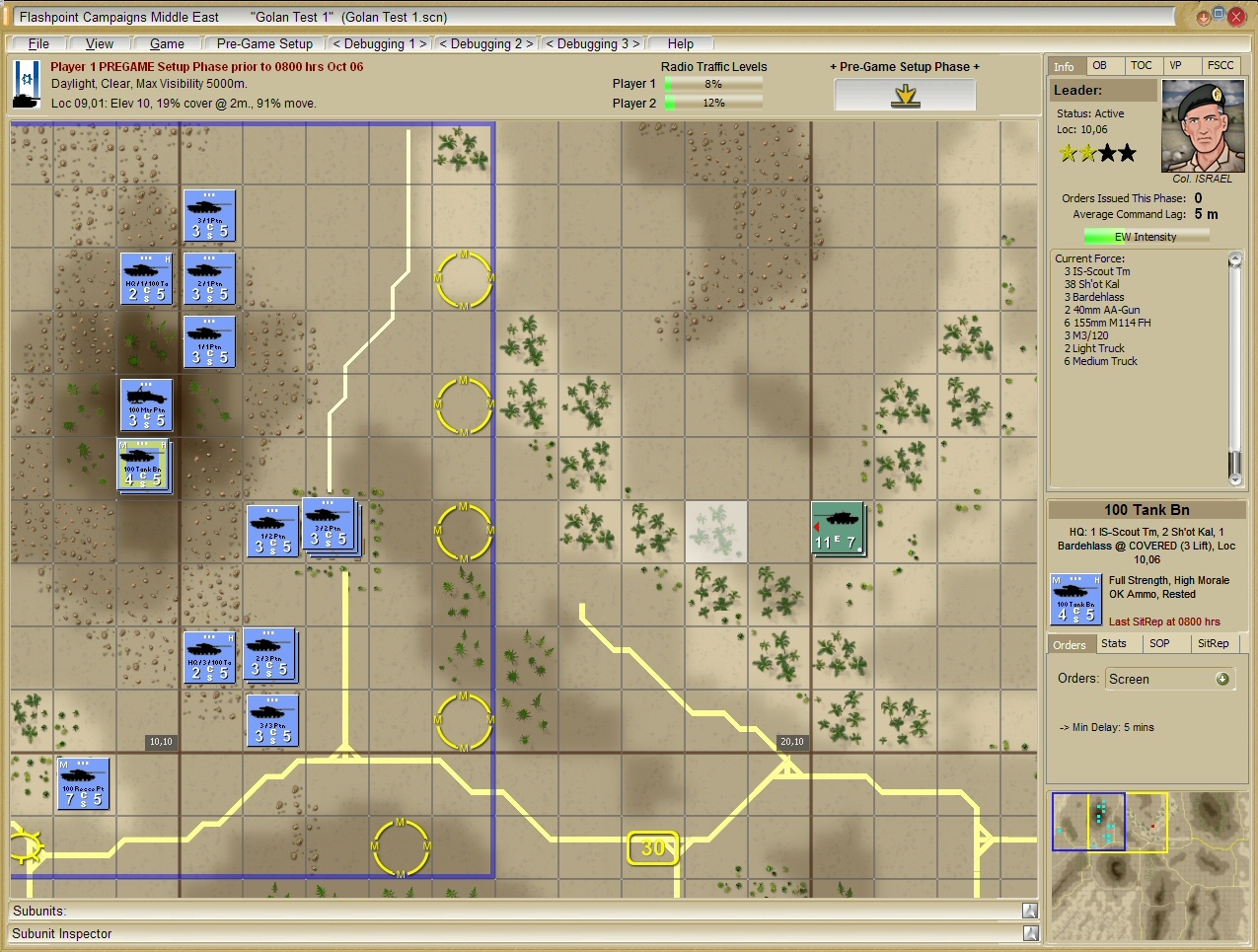
Robert: The “sandy sequel” indeed. We had three fundamental problems with that game. First, we bit off more than we could chew in terms of adding major new game mechanics in a timely manner. This stuff is hard! Second, getting the computer player to play the Arab forces realistically led to, well, unexciting outcomes during playtests. Finally, we changed the game color scheme to sandy tones at the very start of development and got so sick of it after a few years that we lost the will to complete it. I was partnering with Jim Snyder by then, and it slowly drained out of our bodies. Strange, but true.
Tim: Why is Flashpoint Germany no longer available, and is there any chance we will see a budget re-release at some point?
Robert: While I still have the code and development tools for FPG on a virtual machine somewhere, there is no real point to going back to it now. The newer iterations work and look so much better than what we had in 2007, so there is just no point. I think it had all of 4 generic maps and 17 scenarios. This need is better filled, I expect, by keeping Flashpoint Campaigns: Red Storm on the market. If someone has had a long day and just wants to play a game for 30-40 minutes to unwind, then FPRS is the game for that.
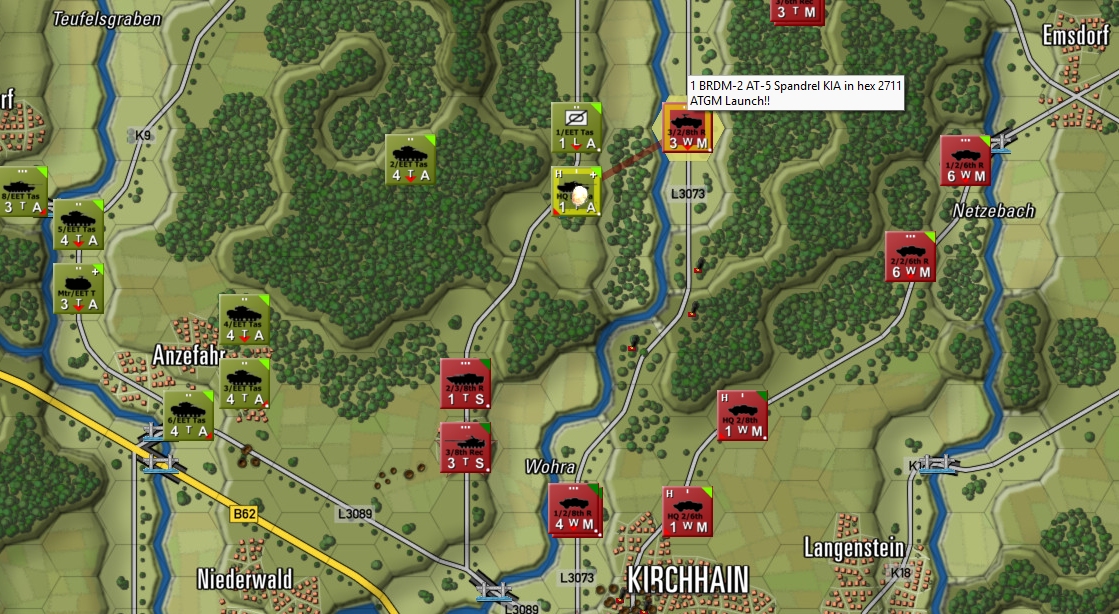
Tim: I imagine FPG’s 2013 sequel, Flashpoint Campaigns: Red Storm (screenshot above) must be On Target Simulations’ biggest seller to date. What does your next release, the due-next-month Flashpoint Campaigns: Cold War (screenshot below), offer that Red Storm doesn’t?
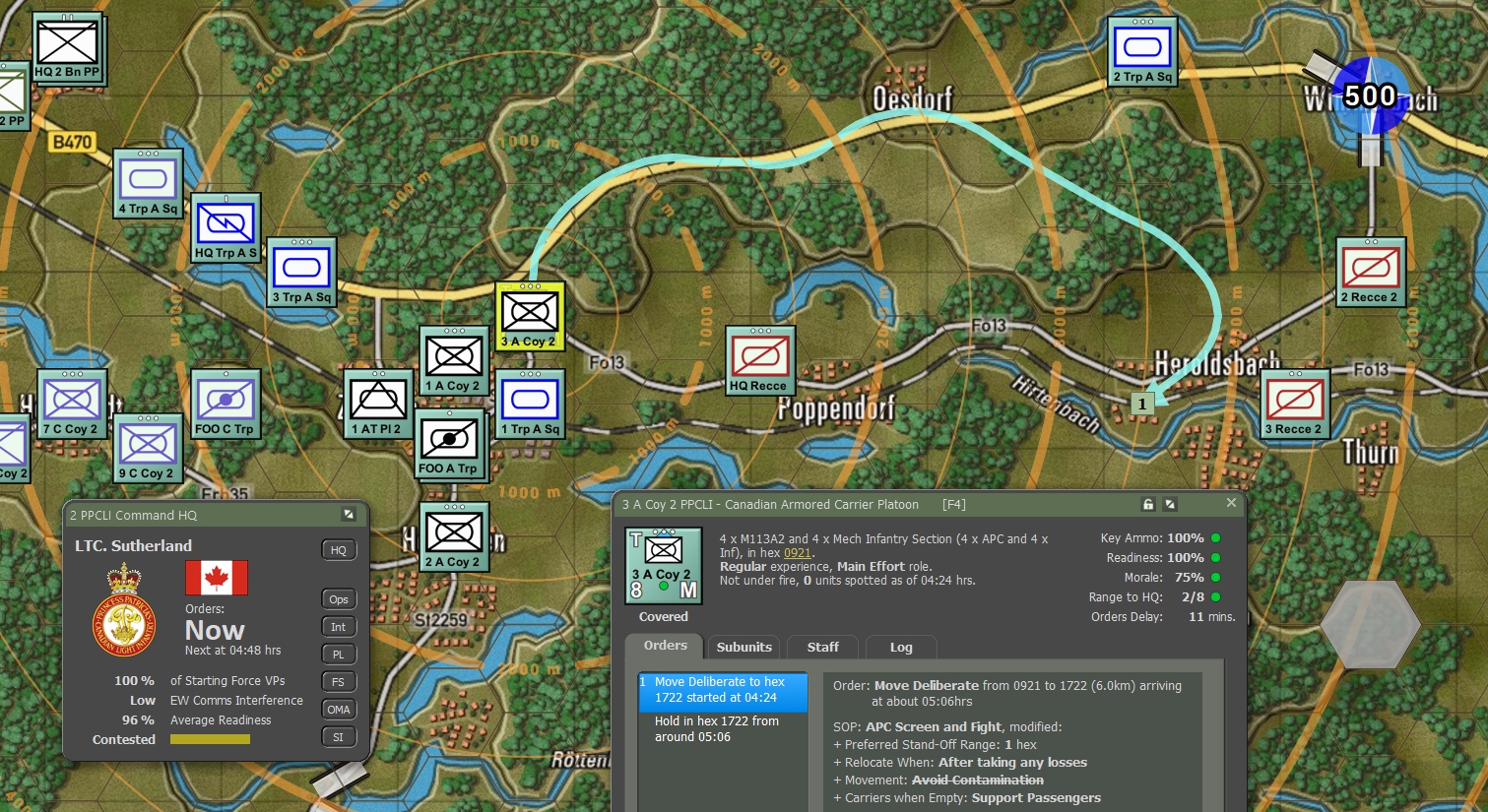
Robert: Flashpoint Campaigns: Southern Storm came out in between, of course, and it is hard to remember all the changes now. Let’s just say that everything everywhere has improved in every way since FPRS. A tiny example: the weather system in FPRS was maybe 10 lines of code that described a little finite state machine that generated probabilistic weather outcomes. Not every weather combination was realistic, though, just mostly in the ballpark. The efficiency of this was cold comfort to those who knew what the real weather was like. We downloaded all the available weather data for Germany over several years (350 MB) and made it accessible to the scenario authors in a major new editor for them to pick and choose from. Random variation within historical limits is allowed, or it can be locked down to something very specific, but in either case, it is far more plausible for a game at this scale. Weather matters in a tactical simulator, and we found the time to do it right after FPRS.
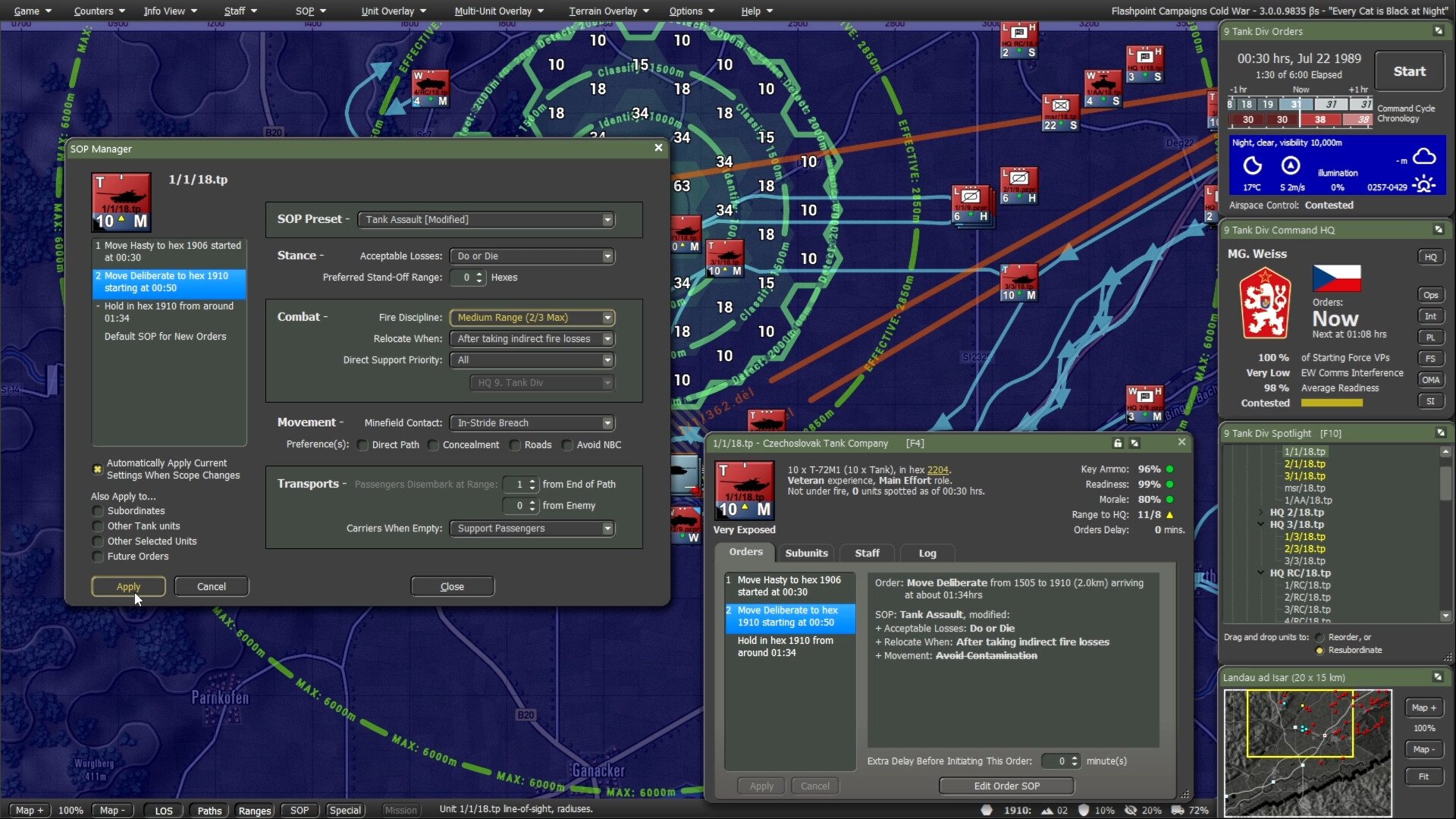
For bigger examples, I would point to a much broader and deeper combat model, the huge improvement in the Standard Operating Procedures game mechanic, vastly expanded Staff Reports , a radically better UI with High DPI and multi-monitor support, far more advanced computer player skills, and more.
Tim: I know OTS has era-shifted Flashpoint Campaigns for military customers in the past. Is there any possibility recreational wargamers will one day get to play a modern-day or WW2 Flashpoint Campaigns?
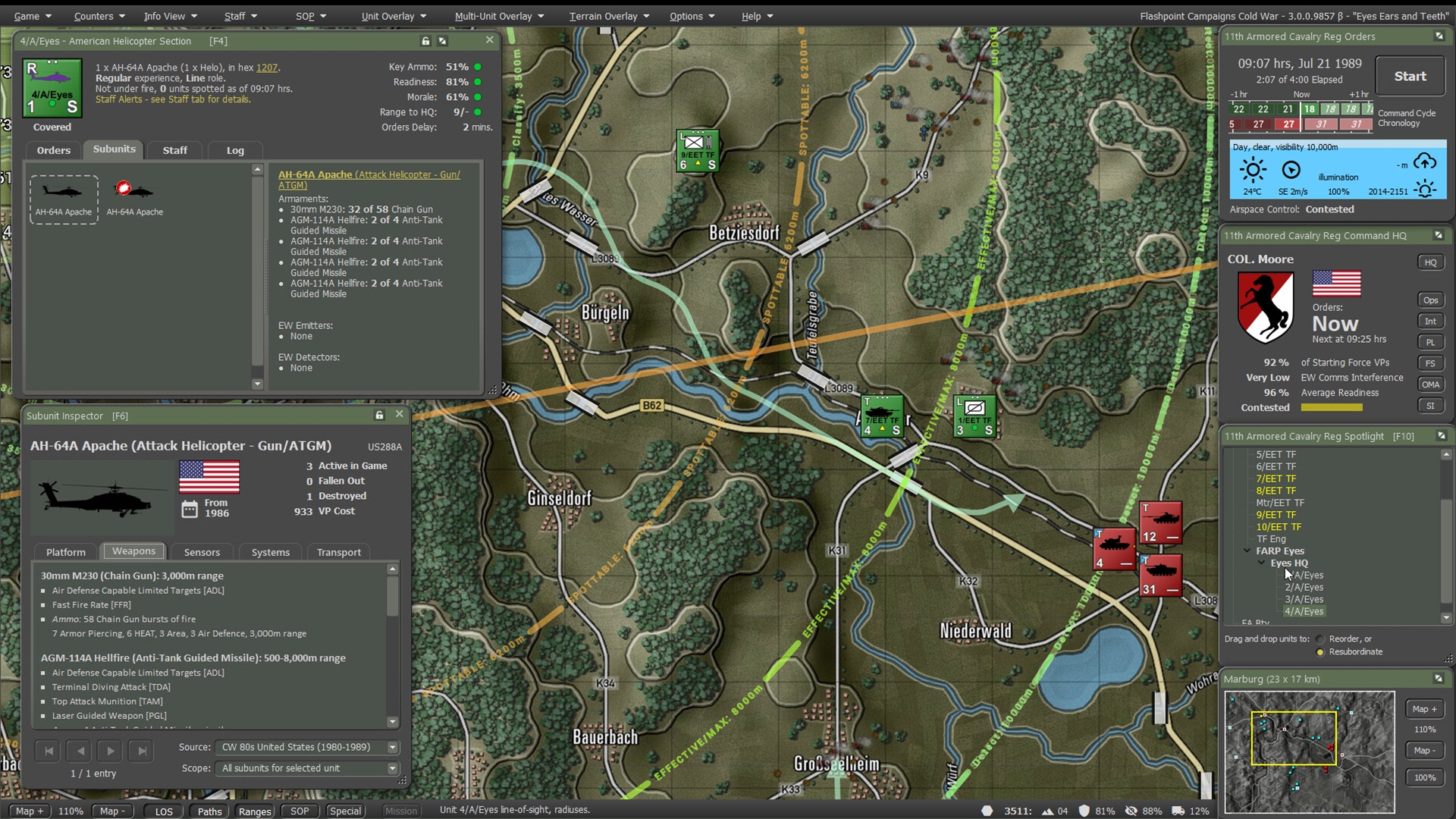
Robert: A modern era variant is highly probable. We have sketched out the new core game mechanics that we need to put in, and will be working on that full-time after FCCW ships. From my point of view, it does not involve any UI ‘color risk’ (please, no more sand tones), so it is much more likely to see the light of day. Modern era is supremely complex though. If Cold War is, say, an order of magnitude more complicated than good old WW2, then modern is another order of magnitude again. Also, yes, we would love to do some WW2 in due course, mainly because it would be relatively more straightforward and we could use the break!
Tim: If you had to make a game set in Canada or involving Canadian troops, which historical event or period would you choose as the theme?
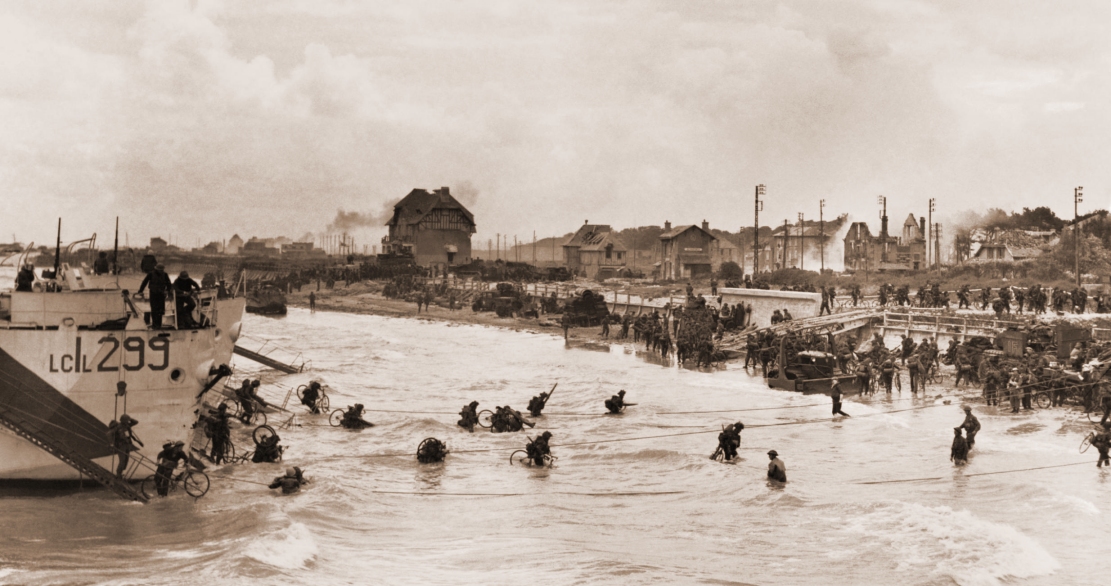
Robert: I would love to do the Canadians in Normandy in 1944 and then the whole victory campaign through to the war’s end. That would be a passion project for me. Also, Canada has a significant force in Latvia right now, and that offers all kinds of interesting modern war possibilities.
Tim: Name a game, either old, new, or in development, that you feel deserves more attention.
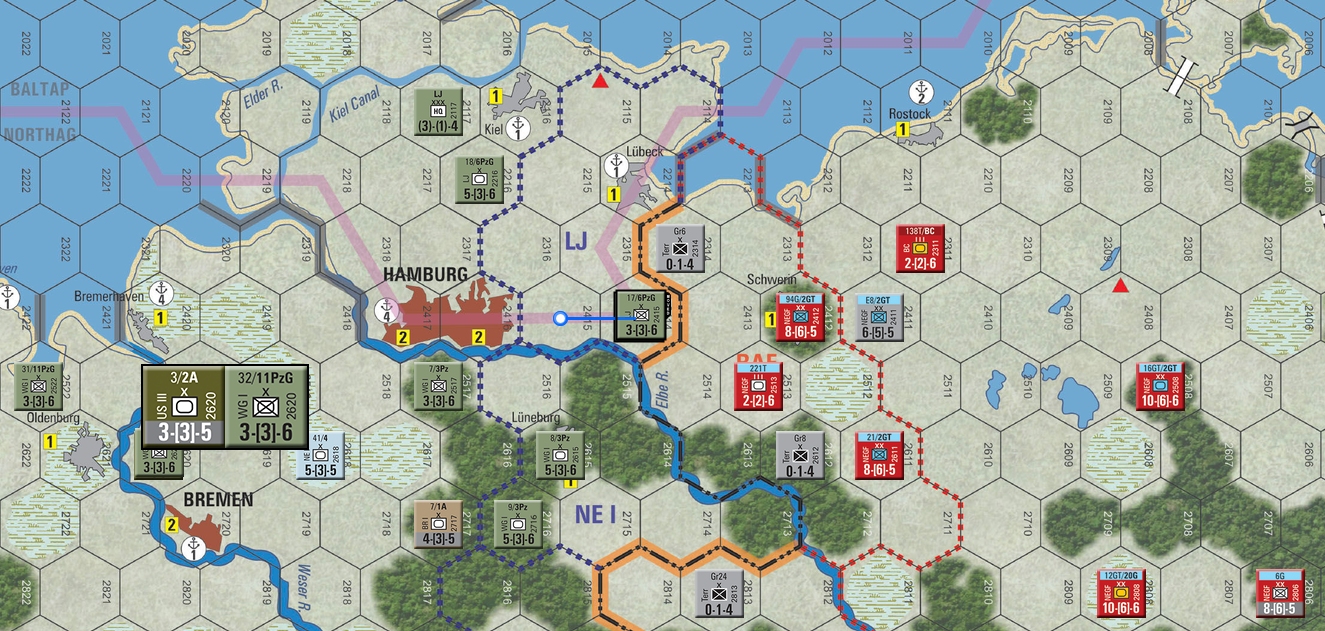
Robert: I would suggest the board game NATO: The Cold War Goes Hot by Bruce Maxwell. It is a brilliant and comprehensive rewrite of his original game and is published by Compass Games. It has the kinds of endless detail that grogs like me just love. Some of the OTS team and I met Bruce, and his collaborator Fred Schwarz, at Origins a year back and had the privilege of having him teach the game to us. Awesome!
Tim: Thank you for your time.

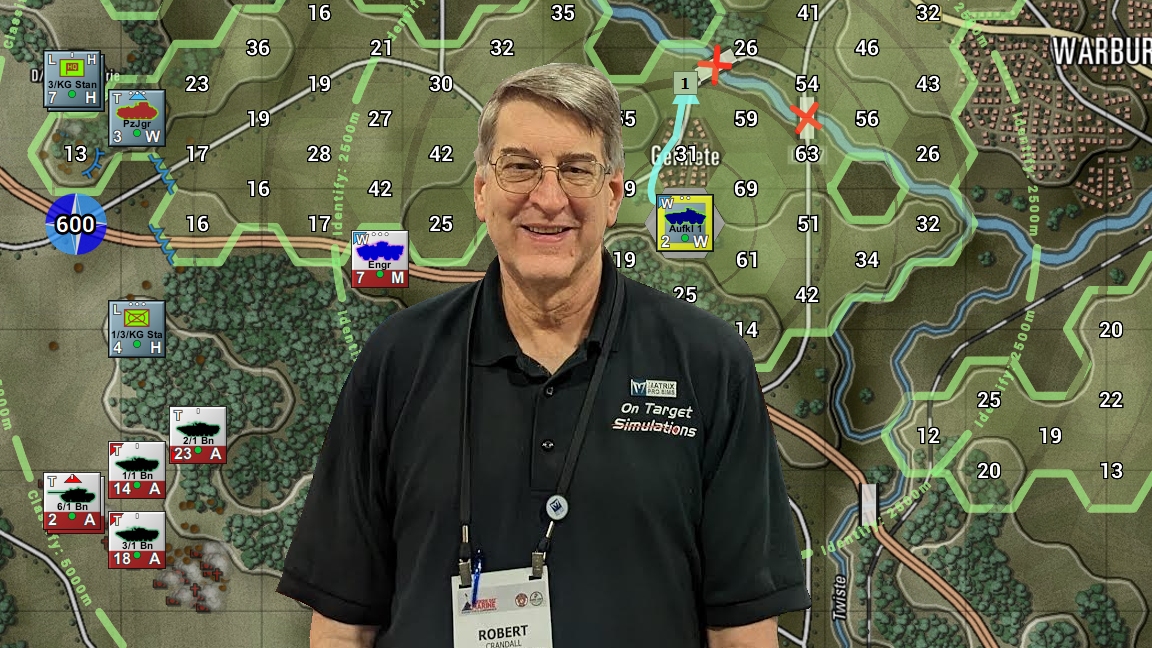
Terrific interview! The Flashpoint games are exceptional and I had no idea that the originated with the SimCan stuff.
Morale +1. Thanks.
I still play Malta Storm to this day on an Amiga emulator. It’s a fantastic operational level wargame.